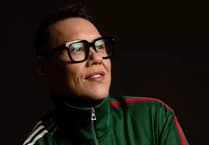NORTH East Somerset’s MP Dan Norris has written to Dyson to establish how plans to cut 1,000 UK jobs will affect the 100 tech specialists at the vacuum manufacturer’s Bristol office.
Dyson has 3,500 UK employees with offices based in Bristol – where around 100 workers are based – as well as in Wiltshire, and London.
Mr Norris, who defeated Jacob Rees-Mogg to take the North East Somerset and Hanham constituency at the General Election, is also calling for a “cast-iron guarantee” that Dyson’s new £100 million research and development centre in Bristol, announced last year, will be built as planned.
The centre is planned for a Dyson-owned building opposite Castle Park, and which will employ “hundreds” of additional AI and software engineers.
Mr Norris MP, who is also the West of England Metro Mayor, said: “Clearly this is a very disappointing and worrying situation for everyone concerned, not least the brilliant 100 tech workers who find themselves at risk of losing their jobs in spite of the fundamental strengths of the Bristol office.
“I hope a solution can be found to keep as many jobs safe as possible in the West of England region, and I have asked for a cast-iron guarantee that the £100 million research and development centre will go ahead as planned.
“Locally, there are obviously limits to what the Mayoral Combined Authority can do but I have offered its full assistance, and have made it clear that we stand ready and will do all we can to support the company and workers to protect as many jobs as possible.”
Dyson told the BBC that the proposals would ensure it was “prepared for the future” amid what it called “increasingly fierce and competitive global markets”.
The move comes after long-running criticism from its founder Sir James Dyson of the UK economy policies, and the business moved its headquarters to Singapore in 2019. The firm has stated the announcement is a business decision, not a political one, and a result of its global review.
Dyson currently has 3,500 UK employees, with offices in Wiltshire, Bristol and London.
CEO Hanno Kirner said the company needed to be "entrepreneurial and agile".
“Decisions which impact close and talented colleagues are always incredibly painful," he said. “Those whose roles are at risk of redundancy as a result of the proposals will be supported through the process."





Comments
This article has no comments yet. Be the first to leave a comment.